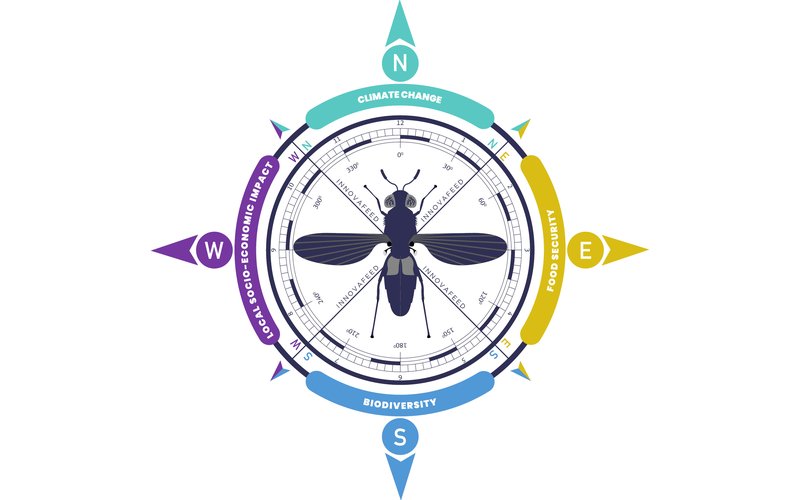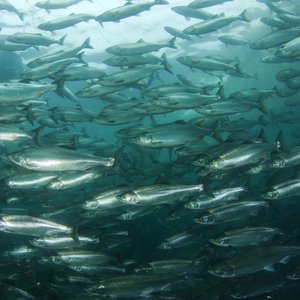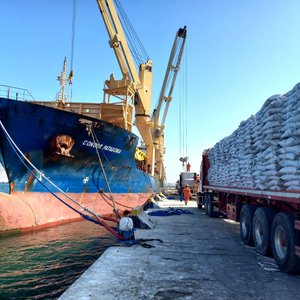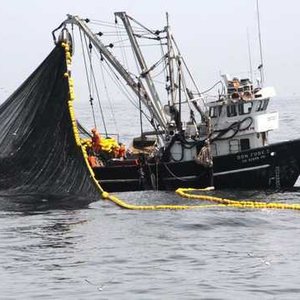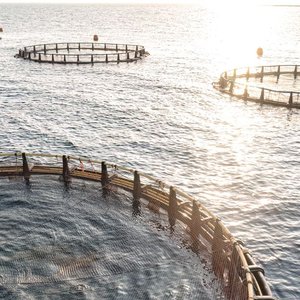Insect producer Innovafeed released its first Impact Report. One year after receiving the B Corp™ Label, and following the establishment of its Impact Committee chaired by Darian McBain, Innovafeed is thus publishing its commitment and strategy to using its “Tech for Impact” model to develop new agri-food solutions that also address crucial challenges the global community faces: Climate Change, Biodiversity, Food Security, and Local Socio-Economic Impact.
While the agro-industry accounts for approximately one-third of global carbon emissions, Innovafeed is guided by an Impact strategy to build the sustainable food system of the future. Since its inception, Innovafeed's teams have developed a technology platform centered around insects to restore their natural role as recyclers. This first report structures a commitment to a circular, sustainable, and waste-free agri-food chain, addressing challenges and opportunities on a global scale.
Innovafeed's mission revolves around the four cardinal points of its Impact Compass:
- Climate: 80% less carbon emissions thanks to synergies generated by its industrial symbiosis model, a unique and already operational model at the Nesle site, which is currently one of the largest industrial vertical farms in the world – with a capacity of 100,000 tons of final products per year by 2025.
- Biodiversity: A goal of preserving 60,000 tons of forage fish by 2030. The report highlights how Innovafeed's insect-based ingredient production contributes to maximizing positive impacts on biodiversity, particularly by limiting the fishing of forage fish for aquaculture and reducing the agricultural land area utilized for animal and fish feed ingredient production.
- Food Security: An innovative and sustainable insect industry to meet a 40% increase in protein demand by 2030. The report describes how Innovafeed's innovative approach constitutes a concrete response to the rising demand for protein in a context where 90% of wild fish stocks are already fished at their maximum capacity, and how Innovafeed encourages circularity in the food supply chain to avoid the loss of recyclable agricultural byproducts.
- Local Socio-Economic Impact: With 220 jobs created in the heart of Hauts-de-France, Innovafeed's green reindustrialization contributes to the professional development of its employees and the revitalization of territories with the immediate creation of innovative, lasting jobs.
Lower carbon emissions
Innovafeed's insect production model distinguishes itself as an “industrial symbiosis” approach. The company engaged in industrial synergies with a local starch processing facility. “Through this collaboration, we recover co-products from the starch production process, promoting the efficient utilization of agricultural byproducts and organic waste as valuable feed inputs for our insect production and thus avoid 12,000 truck journeys per year (by eliminating the drying phase for co-products recovered directly by pipeline). This not only minimizes waste but also reduces the need for additional raw materials, contributing to the circular economy,” Maye Walraven, North American general manager and chief impact officer, explained to Aquafeed.com.
Moreover, the Nesle site collocates with a biomass power plant that generates renewable energy. “We leverage the excess heat from this biomass plant as an energy source for our insect production facilities. This partnership enables us to utilize sustainable energy, significantly reducing our carbon footprint and making our production process more environmentally friendly,” Walraven said. “By colocating with agro-industrial plants we can significantly reduce the carbon emission of our production vs other insect production models.”
The company’s carbon targets by Horizon 2030 are articulated around two metrics: An absolute goal for the total carbon footprint to remain below 30K T of CO2 per year once the French site is fully ramped up, and an intensity goal for products' carbon footprint, with 600kg of CO2 by T being the target for its protein meal.
“One of our main challenges in becoming more sustainable lies in the fact that we are scaling our operation. Unlike incumbent companies that have targets to reduce their own carbon emissions, at Innovafeed, we are developing a new industry to decarbonize the value chains in which we operate. The savings of emissions from the use of Innovafeed insect protein, oil, and fertilizer within the value chain will be tracked as “Avoided Emissions” that result from our activity and help drive our suppliers and customers toward net-zero emissions,” Walraven said.
Avoided Emissions is a metric that quantifies the extent to which a product or solution is decarbonizing an existing process. They occur outside of a product's lifecycle or value chain as a result of the use of that product. Avoided Emissions are the difference between a forecasted scenario where a product is applied and a business-as-usual case in which it is not.
Insect production as an industry distinguishes itself through its circular approach. Insects have the natural ability to upcycle low-value biomass, such as agricultural byproducts and organic waste, reducing reliance on conventional natural resources. “Over time, we hope that regulation can evolve so that more and more sources of low-value biomass can become available to upcycle. To further enhance its sustainability, the industry should focus on optimizing feed conversion ratios and adopting environmentally friendly technologies in production processes,” Walraven said.
More than sustainability
Beyond the results achieved on each of the four cardinal points of our Impact Compass, the report also addresses other dimensions of Innovafeed’s sustainability journey. Under the section titled "Another Path to Impact", the reader will discover progress in environmental, social, and governance initiatives, all aimed at creating a safe working environment and involving every Innovafeed team member in a transformative mission.
“Impact is at the heart of Innovafeed's creation and involves each member of our team. Eager to have a positive impact on the food system of tomorrow, we are proud to share the progress made thus far and the strategy we have defined to achieve the key dimensions of our Impact mission. I thank all the Innovafeed teams for their talent, passion, and dedication in building a new innovative industry and the future green reindustrialization,” said Clément Ray, CEO of Innovafeed.
“Having a positive impact on the food system of tomorrow requires collective mobilization to which Innovafeed contributes. Through the Impact Committee, we are committed to fostering exchanges far beyond the company to co-create an Impact roadmap that can create new opportunities for the global agro-industry. The road is long, and the challenges are numerous, but I have full confidence in everyone's commitment to achieving it,” added Darian McBain, chair of the Impact Committee.
Download the report here.


